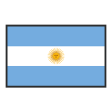In the eyes of many a United States Men's National Team fan, the ideal future looks something like this:
The United States Soccer Federation finally learns the right lesson from the Jurgen Klinsmann era. Rather than retreat inward and fill the USMNT apparatus with former USMNT-ers who've never achieved the success that the fans want this team to achieve, they give the keys to an outsider -- just, you know, an outsider who isn't completely clueless and actively destructive in the same way that Klinsmann was. They hire, say, someone like Carlo Ancellotti or perhaps Mauricio Pochettino or maybe Jose Mourinho or, I don't know, if you want to get wild, Pep Guardiola or Jurgen Klopp.
The specific name is less important than the archetype: a well-respected, supremely successful manager with a European background. With someone who has succeeded in a Big Five European league and won games in the Champions League, the most talented generation of American soccer players would be trained and then arranged on the field in a way that would finally allow these precocious stars to compete with the Frances and Brazils of the world. Throw in some home-field advantage in 2026, and hey: Why can't they win the whole thing?
While the 2026 World Cup will be the USMNT's best-ever chance at making a deep run in the tournament, it won't be because they hire a big-name manager. Of course, they need to hire someone: Anthony Hudson, a Gregg Berhalter assistant and former Colorado Rapids manager, is the interim coach for these CONCACAF Nations League games against Grenada and El Salvador, and who knows beyond that.
But given the recent history among the top national teams in the world, a star coach isn't realistic. It also probably wouldn't make that much of a difference.
Who manages the major national teams?
To briefly defend the completely unrealistic expectations among a large part of the USMNT fanbase, the USSF does have a lot of money. The USMNT managerial gig could be one of the highest-paid coaching positions in international soccer -- if the federation wants it to be. Money might not be the main driver for every coach, but it's typically one of the major factors in determining who gets to hire whom.
Given that, I'd say there are nine jobs that are clearly more prestigious/better than the USMNT coaching job. Let's run through each one and look at who the current coach is and the two guys who came before him. (We're including only current coaches and then two prior coaches who managed at least 15 matches.) This should give us a better sense of what a realistic hire for the USMNT would be.
 Brazil (no. 1 in FIFA rankings)
Brazil (no. 1 in FIFA rankings)
- Manager: Ramon Menezes (interim, hired in 2023)
- Preceded by: Tite (2016-22), Dunga (2014-16)
"Brazil manager" is the job that the most delusional USMNT supporters think the U.S. job is and, well, Brazil is the team that most resembles what the USMNT might be had this country really played soccer for the past 100-plus years. It's a massive, soccer-obsessed country with more talent than anywhere else in the world. And yet, Brazil has never had a foreign-born manager.
- Stream on ESPN+: LaLiga, Bundesliga, more (U.S.)
Rumors of Pep Guardiola taking over some day continue to persist, and Brazil would fit the mold of all the other teams Guardiola has coached: uber-talented sides that he took from one of the best to the best. That said, it's not like Brazil have been turning away superstar coaches left and right.
The current manager is former U20 coach Ramon Menezes, who took over for Tite. The latter became Brazil manager after a nomadic career that included multiple stints in the United Arab Emirates and a Copa Libertadores title with Corinthians. Before Tite came Dunga, who was fired after the 2010 World Cup and then rehired after the 2014 World Cup. Outside of his two stints with the national team, he has one other season of professional managerial experience.
Sebastian Salazar and Herc Gomez get into a heated debate over Gregg Berhalter's suitability to return as the head coach of USMNT.
 Argentina (no. 2)
Argentina (no. 2)
- Manager: Lionel Scaloni (hired in 2018)
- Preceded by: Jorge Sampaoli (2017-18), Edgardo Bauza (2016-17)
Guess how many professional games Scaloni coached before taking over Argentina and ultimately leading them to a Copa America and then a World Cup victory? That's right: Zero.
Scaloni was an assistant under Sampaoli at Sevilla and then followed him to Argentina when they left the Spanish club after one season. Before Sevilla, Sampaoli managed Chile, whom he led to their first-ever Copa America title in 2015. Other than his run with Chile, he has never lasted anywhere else for more than two seasons. He was just fired -- again -- by Sevilla, who are two points clear of the relegation zone in Spain.
Before Sampaoli, Bauza lasted for a year with Argentina as the team nearly missed out on qualification for the 2018 World Cup under his watch. He also spent time in the UAE before taking over the Albiceleste. He won the Copa Libertadores with Argentine club San Lorenzo in 2014 and Ecuadorian club Liga de Quito in 2008. Both were club-firsts.
 France (no. 3)
France (no. 3)
- Manager: Didier Deschamps (hired in 2012)
- Preceded by: Laurent Blanc (2010-12), Raymond Domenech (2004-10)
It feels like Deschamps has been France manager forever and in coaching years, that's basically true. Before taking over Les Bleus in 2012, he won Ligue 11 with Marseille, spent a year with Juventus in Serie B after the club was relegated, and brought Monaco to the Champions League semifinals.
Deschamps replaced Laurent Blanc, who took over the France job after three years with Bordeaux, where he, in consecutive seasons: 1) finished second, 2) won Ligue 1, and 3) made the Champions League quarterfinals. Before Blanc's two years in charge, the Zodiac-curious Raymond Domenech lasted for six years as France manager. Previously, he'd spent 11 years as France's U21 manager.
Herculez Gomez thinks bringing Gregg Berhalter back as head coach of the USMNT would be a terrible idea.
 England (no. 5)
England (no. 5)
- Manager: Gareth Southgate (hired in 2016)
- Preceded by: Roy Hodgson (2012-16), Fabio Capello (2008-12)
England have run through pretty much all the national-team-manager archetypes here: you've got an inexperienced interim-turned-full-time coach in Southgate. Hodgson is the unspectacular, but successful, native lifer. And then there's Capello, the foreigner who'd won just about everything.
Southgate was managing the England U21s before he became England manager. The year before taking over England, Hodgson led West Bromwich Albion to a club-best 10th-place finish in the Premier League. Two years before, he'd flamed out at Liverpool in barely half of a season. Capello, meanwhile, had just won LaLiga with Real Madrid.
 Netherlands (no. 6)
Netherlands (no. 6)
- Manager: Ronald Koeman (hired in 2023, second stint)
- Preceded by: Louis van Gaal (2021-22, third stint), Frank de Boer (2020-21)
Before taking over the Netherlands, Koeman was somewhere between a disaster and a fall guy at Barcelona. He was the Netherlands' manager for two years before that and struggled at Everton for a year-and-change before that.
Van Gaal is a legend in the game, but he hadn't coached for five years before coming out of retirement to take over the national team for the third time at the 2022 World Cup. In his 20 games in charge, they didn't lose a single game. (Shootouts don't count.) Before van Gaal, de Boer had taken over after managing Atlanta United for two seasons. What was he doing in MLS? He was fired by Crystal Palace after just five matches in charge -- after being fired by Inter Milan after 14 games in charge.
 Italy (no. 8)
Italy (no. 8)
- Manager: Roberto Mancini (hired in 2018)
- Preceded by: Gian Piero Ventura (2016-17), Antonio Conte (2014-16)
Although Mancini had previous success with both Inter Milan and Manchester City, he wasn't some hot coaching candidate when he became Italy manager. Instead, he'd spent the previous year finishing fifth in the Russian Premier League with Zenit St. Petersburg. Mancini replaced Ventura after Italy failed to qualify for the World Cup and the best way to describe Ventura is, well, as the Roy Hodgson of Italy.
Current contretemps at Spurs aside, Conte is truly one of the best managers in world soccer, and he took over Italy at the peak of his powers -- between a run of Serie A titles with Juventus and a Premier League trophy with Chelsea. However, this was something of a marriage of convenience: Italy needed a new coach after the 2014 World Cup, while Conte was out of a job and only really looking for something short-term. He was named Chelsea manager months before Euro 2016 while he was still managing Italy.
 Portugal (no. 9)
Portugal (no. 9)
- Manager: Roberto Martinez (hired in 2023)
- Preceded by: Fernando Santos (2014-22), Paulo Bento (2010-14)
Martinez hasn't coached in club soccer since 2016, when he was fired by Everton. He spent the past six years with Belgium as they rose all the way up to no. 1 in the FIFA rankings. If you want to credit him for that, then this might seem like a good hire that the U.S. missed out on. If you want to credit that to the development of an all-time-great golden generation of players, then Martinez is merely another unspectacular club coach who had to make his way to the international game in search of success.
Before Martinez, there was Fernando Santos, who had spent most of his managerial career in Greece -- both with the national team and various domestic clubs. Santos replaced Bento, who helped establish Sporting Lison as a consistent Champions League qualifier in his four years with the club prior to signing up with the national team.
 Spain (no. 10)
Spain (no. 10)
- Manager: Luis de la Fuente (hired in 2022)
- Preceded by: Luis Enrique (2019-22), Julen Lopetegui (2016-18)
Luis Enrique resigned soon after Spain were eliminated from the round of 16 at the 2022 World Cup, and he was replaced, essentially, with his polar opposite. After a brief stint with Alaves, de la Fuente has spent the past decade coaching Spain at various youth levels.
Enrique, of course, managed one of the greatest soccer teams of all time: the Lionel Messi-Luis Suarez-Neymar edition of Barcelona. He won every possible trophy across his three seasons at the Camp Nou and then spent the past four years as Spain manager. At some point soon, it seems likely he'll be coaching one of Europe's biggest clubs once again.
Before Enrique, Lopetegui came from a similar-ish mold to de la Fuente. He'd managed various Spanish youth national teams for four years before an ill-fated stint at Porto that somehow brought him to the Spain job. In Portugal, he didn't win a single trophy and was fired halfway through his second season with the club.
 Germany (no. 14)
Germany (no. 14)
- Manager: Hansi Flick (hired in 2021)
- Preceded by: Jogi Low (2006-21), Jurgen Klinsmann (2004-06)
It's easier to start backward here. A German legend, Klinsmann was given the job in 2004 despite no previous managerial experience, and he oversaw a somewhat unexpected deep run to the semifinals in 2006 at a tournament the Germans hosted. However, it soon became pretty clear that his No. 2 and eventual replacement, Jogi Low, was the brains behind the operation as Klinsmann has been a disaster at every job he has taken since. Good luck, South Korea.
Before becoming Klinsmann's assistant, Low managed a bunch of random European clubs to not much notoriety but then lasted for 15 years as Germany manager, leading the country to its fourth World Cup title. In 2006, Low had hired Flick as an assistant. He spent 11 years working in various roles for the national team before leaving for Bayern Munich: first as Niko Kovac's assistant, then as his replacement. With Bayern, Flick won the Champions League in 2020, along with every other possible trophy. He then left Munich after the 2020-21 season to take over for Low.
Who the USMNT could hire -- and why it won't matter as much as you think
As mentioned, there are roughly three kinds of coaches in there: unspectacular journeymen, former national team players with little to no managerial experience, and elite coaches. It's just that, well, the latter category is the smallest one. Three of them -- Flick, Conte, and Enrique -- left the club game only because they had the opportunity to coach their native countries. One of them, van Gaal, came out of retirement only because of the opportunity to coach his native country. And the fifth and final guy, Capello, was on his last legs.
More importantly, none of them were all that successful at the World Cup. Flick went home in the group stages in Qatar while Enrique lost in the round of 16, just like Capello did in 2010. Conte didn't coach a World Cup, and while the general impression is that his side did overachieve at Euro 2016, they still only made it to the quarterfinals -- the same round the U.S. went out in Qatar.
Most of the time, the world's richest and most prestigious national federations are not even hiring from the top of the managerial heap. You're usually looking at a moderately successful domestic coach, or taking a flier on a former youth-team coach. Any foreign coaches available are not likely to be the kinds of in-demand managers who you can be confident will actually improve your team's results far beyond its talent level.
Given all of that, it seems like the options for the U.S. will be something like running it back with Berhalter, scooping up an accomplished-but-out-of-a-job American in Europe like Jesse Marsch, or taking a shot on a big name with little-to-no impressive managerial experience (see: Henry, Thierry).
OK, so perhaps that's not an inspiring list, but just look at those 27 names we went over. It's also not an inspiring list!
The best coaches still want to coach club teams because of the (largely) better pay and because it gives you an opportunity to actually coach: to develop players, to train every day, to cultivate relationships between your players. For national-team coaches, the gig is mainly about managing egos, selecting the right players, trying to convince the odd dual-national to play for you, and then selecting the right game-to-game strategy.
Most research that has attempted to quantify the importance of managers has come to the same conclusion.
"The vast majority of papers out there say coaches don't matter," Luke Bornn, now a co-owner of both Toulouse and AC Milan, told me. "I'm oversimplifying, but that's basically it."
There are some clearly terrible coaches, some clearly great ones and then most of the coaches are essentially indistinguishable from each other in how they affect a team's long-term performance. Almost all of the coaches who you can confidently say will make any collection of players better as soon as they arrive -- Guardiola, Klopp and a couple of others -- are not going to be coaching national teams.
Instead, what really matters is the players.
Italy won the World Cup right at the tail end of Serie A's dominance over Europe. Spain won the World Cup as Barcelona and Real Madrid were reestablishing themselves as the two biggest clubs in the world. Germany did the same while Bayern Munich and Borussia Dortmund were frequently making deep runs in the Champions League. France took it home in 2018 because Paul Pogba, N'Golo Kante, Kylian Mbappe and Antoine Griezmann all played for the same team. And Argentina did it in 2022 because the greatest soccer player of all time, Lionel Messi, was born in Argentina.
Will Christian Pulisic stay healthy? Can Gio Reyna ever get healthy? Will Sergino Dest find a club team that wants him? Can Brenden Aaronson develop any skills beyond "runs around a lot"? Will Folarin Balogun decide to play for the USMNT? Can Yunus Musah become a true star? What's next for Tyler Adams and Weston McKennie? Might some of the prospects dotted across the academies of the best clubs in Europe make the leap over the next four years? Center backs and center midfielders, anyone?
"Who will be the next USMNT coach?" is an important question, but not nearly as much as any of those.
